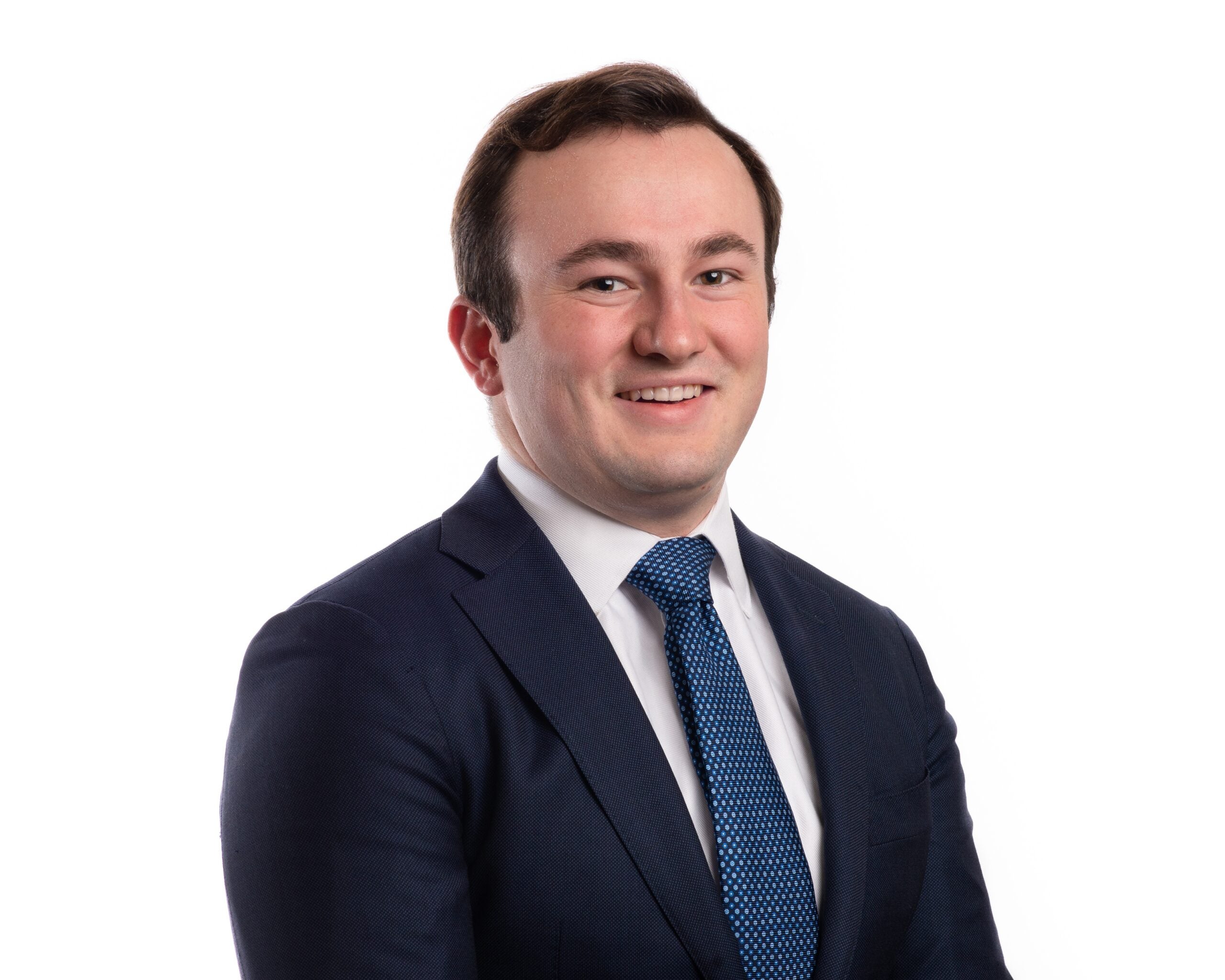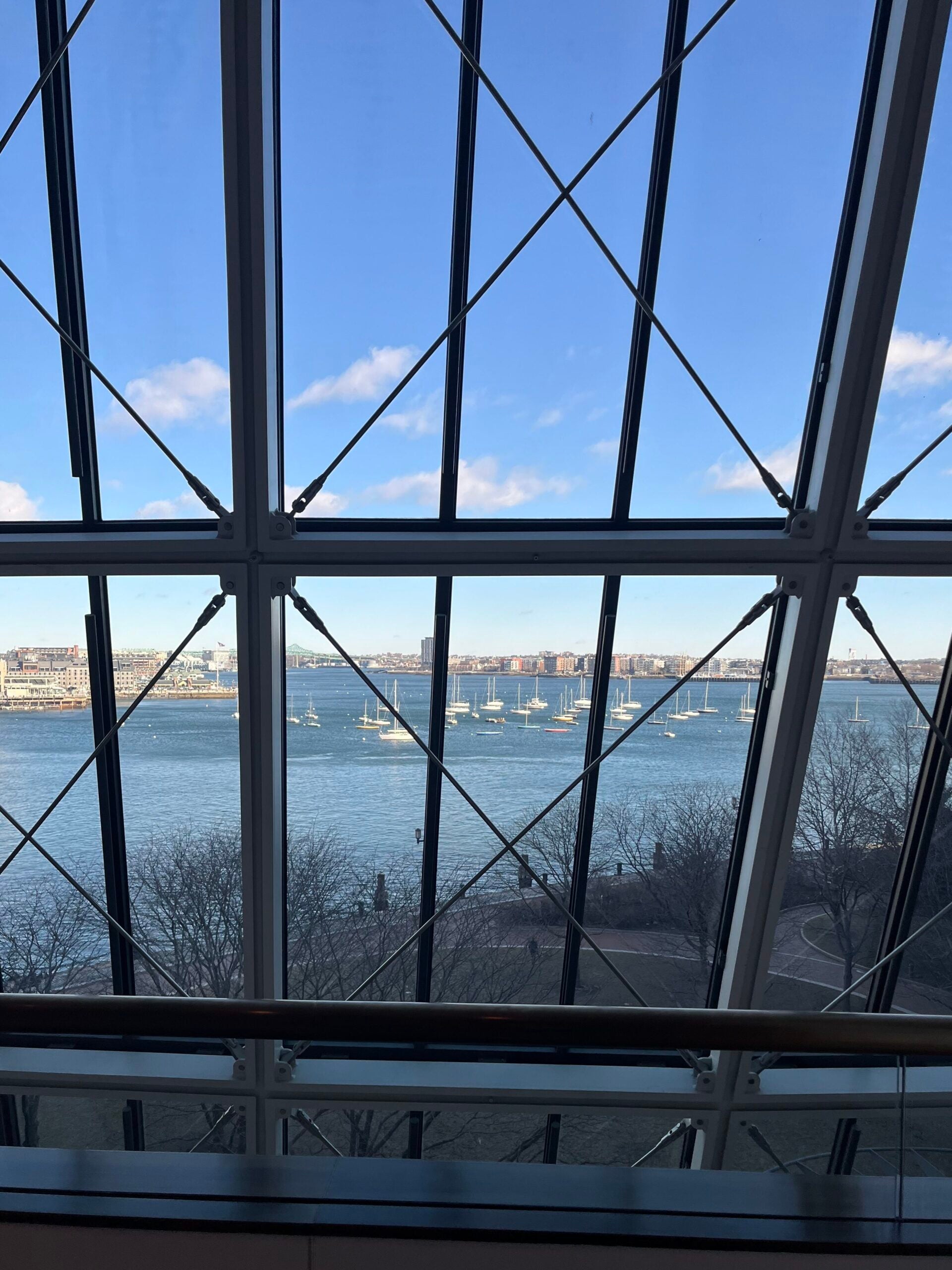By Ned Bless ’25

From just about the moment I started law school, I’ve known that I wanted to be a litigator. There’s something about the competitive nature of litigation, and the ability to stand up in court and advocate on behalf of one’s client which has a certain innate appeal to me. However, throughout my first three semesters of law school, I didn’t have many chances to experience what the actual day-to-day work of a litigator is like.
For that reason, I was thrilled to be able to spend the Spring 2024 semester interning with Chief Judge Dennis Saylor of the U.S. District Court for the District of Massachusetts. I spent Wednesdays and Thursdays throughout the semester working in Judge Saylor’s chambers at the federal courthouse in the Seaport, getting a (literal) front-row seat to the proceedings in federal district court.
I immediately was thrown into the deep end, as my first day in chambers occurred the same day that a major case settled on the eve of closing arguments, after a multiple-week-long trial. That was just the start, as I had the chance to watch many different kinds of proceedings, from criminal hearings, to complex patent disputes, to even a self-represented litigant bringing a suit under the Endangered Species Act. I was truly surprised by the variety of subject-matter areas with which a federal judge has to engage.

Certainly the most powerful proceedings I had the chance to observe were the two criminal sentencings that I saw during the semester. In many ways, the two defendants couldn’t have been more different; one was in his early 70s, being sentenced for tax fraud; the other was in his early 20s, being sentenced for drug offenses. But what was absolutely consistent was the respect and empathy that Judge Saylor showed for each defendant. When Judge Saylor came back to speak with all of the clerks and interns in chambers afterwards, it was clear how much the responsibility of a judge to do justice meant to him.
The internship wasn’t just observing, though. I also had the chance to engage substantively in the everyday work going on in chambers. It was fascinating to be able to observe a proceeding in court, and then go back to chambers and hear from Judge Saylor about what he was thinking and why he ruled the way that he did. Even better were the opportunities to contribute substantively to the work in chambers: I wrote memos for Judge Saylor helping to clarify the points on which he needed to press the attorneys in an upcoming proceeding, and even had a chance to help the clerks with initial opinion drafts.
Over the roughly three months I spent interning with Judge Saylor, I learned more than I have in any law school class before, and the experience helped me get a better sense of what I want my future career to look like. I’m grateful that the Judicial Process in Trial Courts Clinic gave me the chance to have this experience, and the lessons I learned from my time in Judge Saylor’s chambers will stick with me for the rest of law school and beyond.
Filed in: Clinical Student Voices
Tags: Class of 2025, Judicial Process in Trial Courts Clinic
Contact Office of Clinical and Pro Bono Programs
Website:
hls.harvard.edu/clinics
Email:
clinical@law.harvard.edu